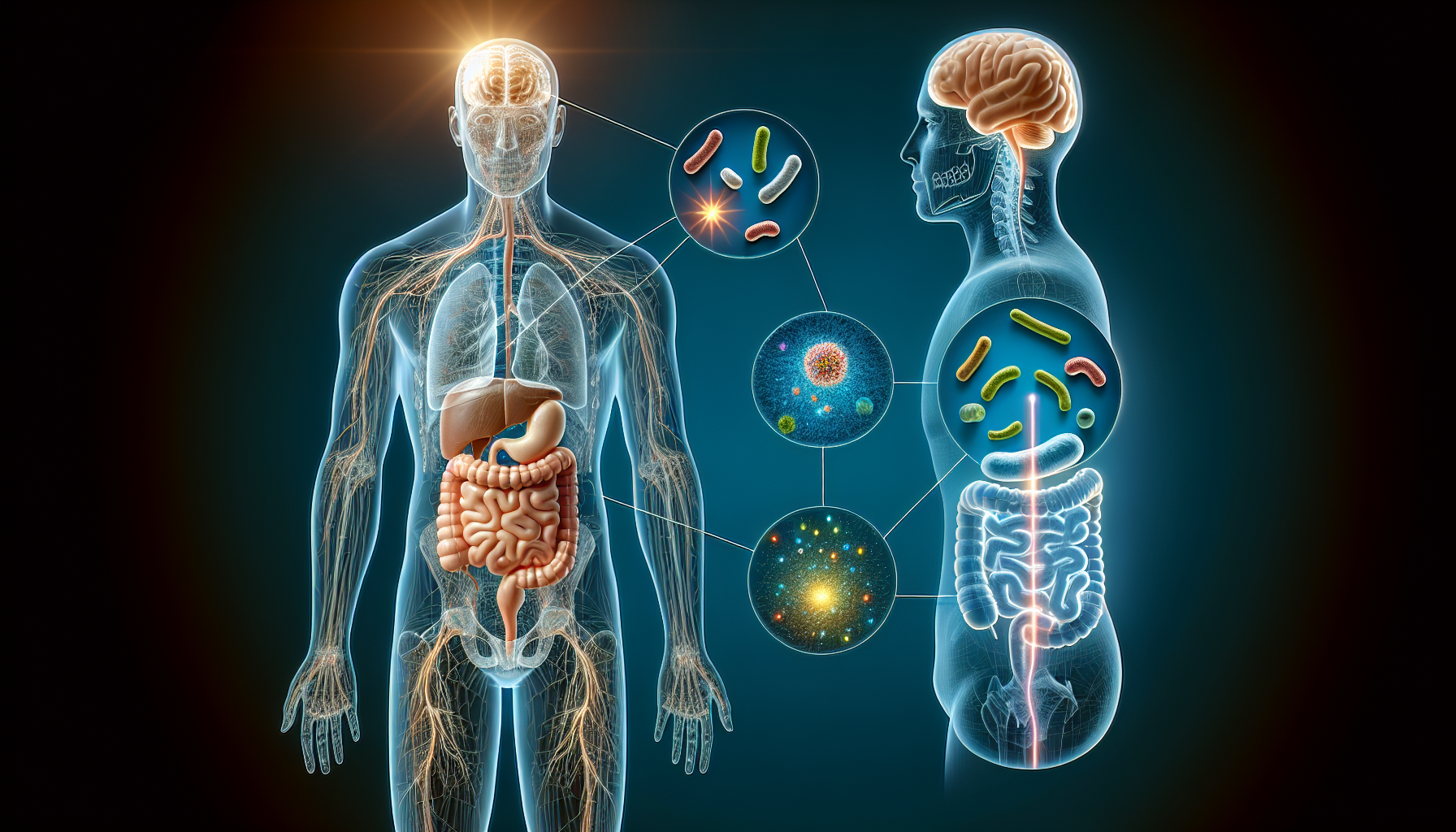The human microbiome, particularly the gut microbiota, has been a topic of intense research over the years, revealing its substantial influence on various aspects of health. Among the myriad of benefits attributed to a balanced gut microbiota, one of the most intriguing is its impact on brain function and mood. This article delves into the burgeoning field of psychobiotics, exploring how probiotics — live microorganisms that confer health benefits — may play a pivotal role in cognitive processes and emotional well-being.
Gut Microbiota: The Second Brain
Our gastrointestinal tract is inhabited by trillions of microorganisms that constitute the gut microbiota. This complex ecosystem is often referred to as the "second brain," given its ability to communicate with the central nervous system through various pathways, including the vagus nerve, immune system, and production of neurotransmitters. It is this bidirectional communication system, known as the gut-brain axis, that is central to understanding the influence of gut health on brain function.
Probiotics and Neurotransmitters
Neurotransmitters are chemical messengers crucial for relaying signals within the brain and between the brain and the rest of the body. The gut microbiota synthesizes a range of neurotransmitters, such as serotonin, dopamine, and gamma-aminobutyric acid (GABA), which are vital for mood regulation, alertness, and anxiety. By modulating the types and quantities of gut bacteria through the intake of probiotics, it’s possible to influence the production of these neurotransmitters, thereby impacting brain function and mood.
For more in-depth insights into the complex workings of brain health, Avix Health’s article on Brain Health provides valuable information.
Clinical Evidence Linking Probiotics and Brain Function
Several clinical studies have suggested that probiotics can lead to improvements in cognitive function and mood. For instance, certain strains of Lactobacillus and Bifidobacterium have been associated with reduced symptoms of depression and anxiety. This improvement is thought to be due to the anti-inflammatory effects of these probiotics, which can mitigate neuroinflammation, a contributor to mood disorders.
Furthermore, research has shown that probiotics can enhance cognitive functions, such as memory and learning, by reducing oxidative stress and improving neuronal communication. Probiotics may also bolster the integrity of the gut barrier, preventing the entry of harmful substances that could trigger neuroinflammation.
For individuals looking to delve deeper into cognitive function and its enhancement, exploring the cognitive benefits of regular physical exercise can provide complementary strategies to probiotic intake.
Addressing Mood Disorders with Probiotics
Mood disorders such as depression and anxiety have complex etiologies with numerous contributing factors. The gut-brain axis offers a novel therapeutic target, and probiotics may serve as a valuable adjunct treatment. Probiotics can help balance the gut microbiota, leading to the production of mood-regulating neurotransmitters and reduction of systemic inflammation, which is often elevated in mood disorders.
Moreover, studies have indicated that the gut microbiota composition in individuals with depression differs from that of healthy individuals, suggesting that modulating the microbiome could be beneficial in managing depression.
Probiotics for Cognitive Health
Cognitive health is a crucial aspect of overall well-being, encompassing memory, attention, problem-solving, and decision-making. Probiotics may influence cognitive health by reducing inflammation, which is known to affect cognitive function negatively. They also have the potential to modulate the immune response and protect against neurodegenerative diseases.
For those interested in further cognitive enhancement techniques, the benefits of brainwave entrainment techniques offer additional insights into non-dietary methods of bolstering brain health.
Beyond the Gut: The Systemic Effects of Probiotics
The effects of probiotics extend beyond the gut. They have been shown to influence systemic inflammation, immune function, and even the regulation of stress hormones like cortisol. By modulating these physiological processes, probiotics may exert a broader impact on overall health and well-being, including brain health.
Selecting the Right Probiotics
Not all probiotics are created equal, and their effects can vary based on strain, dosage, and individual gut microbiota composition. When selecting probiotics for brain function and mood, it is essential to choose strains with clinical evidence supporting their efficacy. Lactobacillus helveticus and Bifidobacterium longum are two such strains that have been studied for their potential benefits in this area.
Practical Considerations and Recommendations
For those considering probiotics for brain function and mood, it is advisable to:
- Consult with a healthcare provider, especially if you have underlying health conditions or are taking medications.
- Look for high-quality probiotic supplements with clinically tested strains.
- Incorporate probiotic-rich foods into your diet, such as yogurt, kefir, sauerkraut, and kimchi.
- Maintain a balanced diet and healthy lifestyle to support the efficacy of probiotics.
Conclusion
The link between probiotics, brain function, and mood is a promising area of research that holds potential for new therapeutic avenues. While further research is needed to fully understand the mechanisms and to personalize probiotic treatments, the current evidence indicates that these beneficial microbes could play a significant role in supporting cognitive health and emotional wellness.
For those seeking to enhance their mental health through lifestyle changes, probiotics offer an exciting, natural option to explore. With the continued advancement of the gut-brain axis research, the future may bring even more targeted and effective probiotic therapies for brain health.
To support the points made in this article, here are niche and specific resources for further reading:
- A comprehensive review on the effects of the gut microbiome on the central nervous system: The Gut-Brain Axis: From Physiology to Behavior.
- Research on the specific probiotic strains and their impact on mental health: Probiotics and Subclinical Psychological Symptoms.
- An exploration of the role of inflammation in depression and how probiotics may help: Inflammation: Depression Fans the Flames and Feasts on the Heat.
- A study on the potential cognitive benefits of probiotics: Effect of Probiotics on Cognitive Function and Metabolic Status.
- An overview of the gut-brain axis and its implications for psychiatric and neurological disorders: The Microbiota-Gut-Brain Axis.
Whether seeking to mitigate mood disorders, enhance cognitive functions, or maintain overall brain health, embracing the symbiotic relationship between our microbiome and brain may lead to a happier, healthier life.



